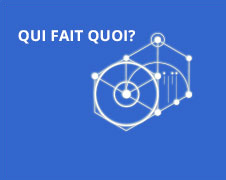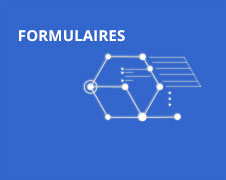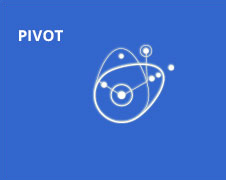Aaron Courville
Architectures profondes d'apprentissage
- Professeur titulaire
-
Faculté des arts et des sciences - Département d'informatique et de recherche opérationnelle
André-Aisenstadt, room 3253
Media
Profile
Research expertise
Ses intérêts de recherche sont axés sur le développement de modèles et d’algorithmes pour les architectures profondes d’apprentissage, plus particulièrement le développement de modèles probabilistes et des méthodes d’inférence, avec des applications incluant la vision par ordinateur et le traitement du langage.
Biography
Aaron Courville est professeur agrégé dans le laboratoire LISA de l’Université de Montréal. Il a reçu un doctorat en robotique en 2006 (School of Computer Science, Carnegie Mellon University). Il détient aussi une maîtrise et un baccalauréat en sciences appliquées (Electrical Enginering, University of Toronto).
Affiliations and responsabilities
Research affiliations
Teaching and supervision
Teaching
Courses taught (current session only)
Programs
Student supervision
Theses and dissertation supervision (Papyrus Institutional Repository)
Toward neural networks that generalize systematically
Cycle : Doctoral
Grade : Ph. D.
Neural architectures for compositional generalisation
Cycle : Doctoral
Grade : Ph. D.
Learning generative models from a control perspective
Cycle : Doctoral
Grade : Ph. D.
Improving predictive behavior under distributional shift
Cycle : Doctoral
Grade : Ph. D.
Beyond the status quo in deep reinforcement learning
Cycle : Doctoral
Grade : Ph. D.
Self-supervision for reinforcement learning
Cycle : Doctoral
Grade : Ph. D.
Sequential decision modeling in uncertain conditions
Cycle : Doctoral
Grade : Ph. D.
Building sample-efficient reinforcement learning
Cycle : Doctoral
Grade : Ph. D.
Coordination in generative modeling, automatic differentiation and multi-agent learning
Cycle : Doctoral
Grade : Ph. D.
Beyond top line metrics : understanding the trade-off between model size and generalization properties
Cycle : Doctoral
Grade : Ph. D.
Parameter, experience, and compute efficient deep reinforcement learning
Cycle : Doctoral
Grade : Ph. D.
Promoting robustness and compositionality in machine learning with insights from cognitive bottlenecks
Cycle : Doctoral
Grade : Ph. D.
Differentiable best response shaping
Cycle : Master's
Grade : M. Sc.
Emergence of language-like latents in deep neural networks
Cycle : Doctoral
Grade : Ph. D.
Stabilizing Q-Learning for continuous control
Cycle : Master's
Grade : M. Sc.
AI alignment and generalization in deep learning
Cycle : Doctoral
Grade : Ph. D.
Controllable music performance synthesis via hierarchical modelling
Cycle : Master's
Grade : M. Sc.
On discovering and learning structure under limited supervision
Cycle : Doctoral
Grade : Ph. D.
Syntactic inductive biases for deep learning methods
Cycle : Doctoral
Grade : Ph. D.
Advances in generative models for dynamic scenes
Cycle : Doctoral
Grade : Ph. D.
On iterated learning for task-oriented dialogue
Cycle : Master's
Grade : M. Sc.
Towards deep unsupervised inverse graphics
Cycle : Master's
Grade : M. Sc.
Continuous coordination as a realistic scenario for lifelong learning
Cycle : Master's
Grade : M. Sc.
Data-efficient reinforcement learning with self-predictive representations
Cycle : Master's
Grade : M. Sc.
On improving variational inference with low-variance multi-sample estimators
Cycle : Master's
Grade : M. Sc.
Estimation neuronale de l'information mutuelle.
Cycle : Master's
Grade : M. Sc.
Deep learning and reinforcement learning methods for grounded goal-oriented dialogue
Cycle : Doctoral
Grade : Ph. D.
Emerging communication between competitive agents
Cycle : Master's
Grade : M. Sc.
Representation learning in unsupervised domain translation
Cycle : Master's
Grade : M. Sc.
Towards learning sentence representation with self-supervision
Cycle : Master's
Grade : M. Sc.
Representation learning for dialogue systems
Cycle : Doctoral
Grade : Ph. D.
Advances in deep learning with limited supervision and computational resources
Cycle : Doctoral
Grade : Ph. D.
Exploring Attention Based Model for Captioning Images
Cycle : Master's
Grade : M. Sc.
Deep Learning for Video Modelling
Cycle : Master's
Grade : M. Sc.
Learning visual representations with neural networks for video captioning and image generation
Cycle : Doctoral
Grade : Ph. D.
Representation Learning for Visual Data
Cycle : Doctoral
Grade : Ph. D.
Sequence to sequence learning and its speech applications
Cycle : Master's
Grade : M. Sc.
Towards deep semi supervised learning
Cycle : Master's
Grade : M. Sc.
Speech synthesis using recurrent neural networks
Cycle : Master's
Grade : M. Sc.
Influencing the Properties of Latent Spaces
Cycle : Master's
Grade : M. Sc.
Sequential modeling, generative recurrent neural networks, and their applications to audio
Cycle : Master's
Grade : M. Sc.
Deep learning of representations and its application to computer vision
Cycle : Doctoral
Grade : Ph. D.
Leveraging noisy side information for disentangling of factors of variation in a supervised setting
Cycle : Master's
Grade : M. Sc.
Projects
Research projects
Promoting systematic generalization in vision-and-language foundation models
Canada Research Chair in Learning representations that generalize systematically
Korean flagship AI research center: Multi-modal latent conditioning for Generative Diffusion Models
Identification of fish species from underwater camera footage
Nomination à titre de conseiller scientifique
Fellow, CCAI Chair, CIFAR program in Learning in Machines & Brains
Enhanced real-time object detection and space management for bus stop monitoring using fisheye camera technology from the SCiNe device of BusPas
Anomaly and Defect Detection in Orchards
Création d’images synthétiques de radar météorologique par télédétection pour la prévision immédiate des orages
Création d’images de super résolution à partir d’images multiplateforme pour des besoins en hydraulique
Design and develop an efficient offline computer vision system to detect site behavior at the bus stop using the SCiNe device of BusPas
Extending the Frontiers of Deep Generative Modelling
Hierarchical Context Retrieval for LLM Question Answering
Mastering Multi-modal Decision-making with World-Models
ML for Action Detection in Movies for Haptic Effects Generation
High frequency measurement generation model from low frequency features››
"Personal Assistant for Blind people”
Software infrastructure for Deep Learning
Generation model optimization
Physics-inspired Deep Generative Modeling and New Physics Search for High Energy Physics
Apogée Canada fonds d'excellence en recherche / Bourse d'excellence IVADO au doctorat Lluis E. Castrejon Subira
Visual-haptic Representation for Zero-shot Learning
Support research related to the CIFAR program in Learning in Machines & Brains_Fellow
Unsupervised Learning of 3D Scenes from Images using a View-based Representation
Fellow of the CIFAR LMB Program / CIFAR program Learning in Machine & Brains
Programme de stages - IVADO - Eugene Belilovsky /Towards Learning Language Based Navigation in Visually Rich 3-D Environments
Software infrastructure for Deep Learning
Unsupervised Learning of 3D Scenes from Images using a View-based Representation
Interative Grounded Language Understanding (IGLU)
CIFAR// Fellow // Research Support and Teaching Release // Learning in Machines & Brains
Apprentissage non-supervisé d'architectures profondes pour le changement d'expressions faciales
PROBABILISTIC MODELS FOR AUTOMATIC EQUIVARIANT FEATURE DISCOVERY
Highperformance computing environment to leverage deep learning technology for large biomedical and neuroimaging data
Deep Learning for Cognitive Computing
Interactive Grounded Language Understanding (IGLU)
DEVELOPPEMENT D'UN SYSTÈME ROBUSTE DE RECONNAISSANCE D'ACTIVITES HUMAINES UTILISANT DES FILMS ET LEUR TEXTE DESCRIPTIF
RESEARCH ON SCALING UP DEEP LEARNING
L'APPRENTISSAGE PROFOND DES IMAGES ET DU LANGAGE NATUREL
CIFAR//Fellow//Research Support
LARGE-SCALE DEEP LEARNING FOR CONTENT-BASED RECOMMENDATION SYSTEMS
ADIABATIC QUANTUM COMPUTING FOR DEEP LEARNING WITH BOLTZMANN MACHINES
Outreach
Publications and presentations
Publications
- Les publications d'Aaron Courville, sont disponibles ici : https://aaroncourville.wordpress.com/publications/
Disciplines
- Computer Science
- Neurosciences
Areas of expertise
- Machine learning
- Representation learning
- Deep learning
- Artificial intelligence
- Probabilistic models
- Statistical models
- Neural Networks
Aide en ligne pour votre profil | Nous joindre
Le Répertoire des professeurs est propulsé par les données du ![]() SADVR et est un projet du CENR.
SADVR et est un projet du CENR.


